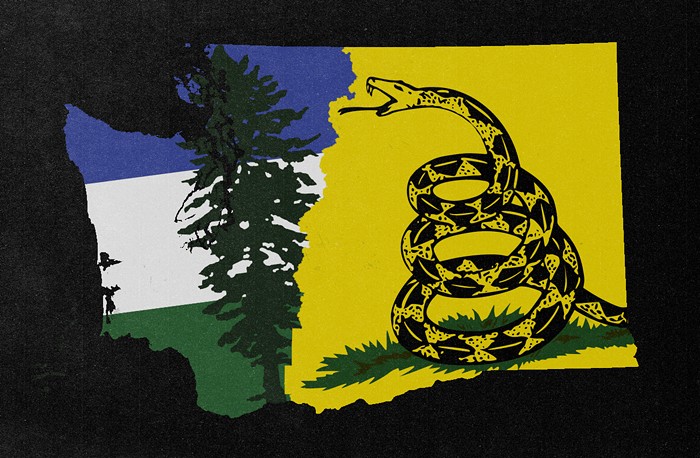
According to a new study out of Yale University's Program on Climate Change Communication, the belief in climate change doesn't just fall along party lines, it also falls along regional ones.
As the Seattle Times Gene Balk reports, researchers analyzed how voters think about climate change in all 50 states and 435 congressional districts, and found that while 82 percent of Democrats across in the U.S. believe that global warming is happening, that number is higher on the West Coast. And it's especially high in Washington's 7th Congressional District, which covers Seattle. Ninety-three percent of Democrats in the 7th District believe climate change, the highest rate in the country (closely followed by San Francisco and Portland). At the lower end of the spectrum are voters in Southern states like Alabama, where, in some districts, as low as 68 percent of Democrats think climate change is real.
But even Deep South Democrats are more likely to believe in climate change than West Coast Republicans. Only 60 percent of Republicans in the 7th believe in climate change, about 10 points higher than the national average.
Anthony Leiserowitz, director of the Yale Program on Climate Change Communication, told the Times, “It raises all kinds of interesting questions about communication. How much of it is driven by the fact that people in Alabama just generally talk about and hear about climate change far less than do people in Seattle?”
Perhaps ironically, climate change is expected to impact already warm places like Alabama greater than northern climes like Seattle. According to the pre-Trump EPA, Alabama has already seen an increase in rising sea levels, heavy storms, dangerously hot days, and a decrease in crop yields due to climate change.
Not that Seattle will come out of this unscathed: As Sydney wrote in 2015, failure to address climate change "threatens snow in the mountains, the vast regional ecosystem that snow supports, and the very foundations of life in the sea. If the climate spirals out of control, Seattle may survive, but elements of the city's economic and cultural backbone—winter recreation, the salmon industry, the shellfish industry—could disintegrate."















